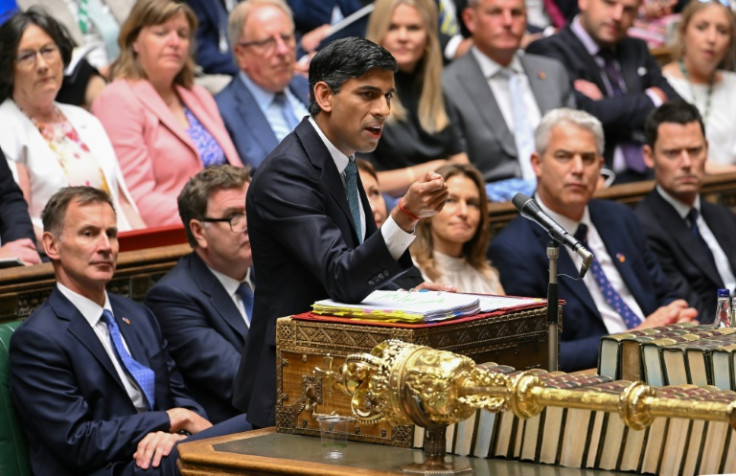Sunak Says UK Is Ready To Strike Houthis Rebels Once More
Rishi Sunak contradicts Grant Shapps as he warns that the UK is ready to strike Yemeni rebels once more if the group continue to hold hostages and attack shipments.

On Friday 12 January, the UK took part in a series of collaborated airstrikes on the armed group Houthis, in Yemen.
The assault on the targets was a combined attack that was led by the US and included 10 countries.
According to a statement released by the White House, Australia, Bahrain, Canada, Denmark, Germany, the Netherlands, New Zealand, the Republic of Korea, the United Kingdom and the United States agreed upon the strike to "defend lives and protect the free flow of commerce in one of the world's most critical waterways".
The US said that its army has destroyed a Houthis missile that was headed towards one of its warships in the region.
The government reported that the airstrike was carried out using drones, a cruise missile launcher and an airfield. According to Prime Minister Rishi Sunak, the assault destroyed 13 rebel targets at two sites.
After being slammed by members of the British public for striking the Houthis rebel group without parliament's approval, Sunak announced that the UK is willing to commit further military action against the group once again.
Sunak's statement came just hours after the Yemeni rebel group launched a missile attack on a US-operated container ship in the Red Sea.
The British Prime Minister went on to defend his decision to back the US by conducting the strikes and warned that, if the Houthis continue to hold hostages and pose a threat to international shipments, the UK will destroy additional targets.
Sunak's warnings contradicted the words of Defence Secretary Grant Shapps and highlighted potential uncertainties within the Conservative Party.
With no word from Sunak, while speaking to an audience in central London on Monday this week, the Defence Secretary said that the UK did not intend to launch any other attacks on the Yemeni rebels.
"Although this was a distinct piece of precisely targeted military action, we will not put up with a major waterway, major shipping lanes being closed on a permanent basis," Shapps claimed.
Addressing MPs for the first time since the collaborated assault on Monday, Sunak noted: "This action was taken in self-defence. It was limited, not escalatory. It was a necessary and proportionate response to a direct threat to UK vessels and therefore to the UK itself."
Reports note that several MPs responded to the Prime Minister's explanation by questioning why parliament was not called upon to discuss the assault.
The Prime Minister went on to declare: "The threats to shipping must cease. Illegally detained vessels and crews must be released. And we remain prepared to back our words with actions."
"It was necessary to strike at speed ... to protect the security of these operations," Sunak claimed.
"That is in accordance with the convention and I remain committed to that convention and would always look to follow appropriate processes and procedures and also act in line with precedent," the Prime Minister continued.
In response, Liberal Democrat Party Leader Ed Davey dubbed the lack of parliamentary input "regrettable".
Labour Party Leader Keir Starmer welcomed Sunak's decision to take part in the assault on the rebel group, however, he did note that "scrutiny is not the enemy of strategy".
Also addressing MPs on Monday, Starmer said: "The UK strikes were limited, targeted and did everything possible to protect civilian lives. That is a proportionate response."
Labour MP Zarah Sultana warned the government that the back-and-forth assault on the Houthis rebels could intensify the ongoing conflict in the Middle East.
Although Sunak denied the Red Sea strike being connected to the Israel-Gaza conflict, Sultana noted: "Military intervention starting out as limited can quickly escalate, risking a sequence of events far larger and more terrible, and risk even dragging us into war."
© Copyright IBTimes 2025. All rights reserved.






















